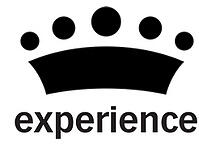We've all heard the phrase content is king and have an idea of what that means. In the context of the web it has specific meaning regarding the value of SEO. Search providers (Google, Bing, etc.) seem to be changing the game on us with sophisticated technology like Panda. The underlying goal is straightforward enoughdelivering relevant results on searches. After all, that's how they stay in business. Keeping that in mind makes it easier to concentrate on what matters in SEO. However, with the way search engines are changing, is it possibly time to reconsider the statement 'content is king?' Could user experience become the main focus?
 Here is an analogya dinner partyas an example of putting your main attention on either content or experience. There is a host, venue, guests, accoutrements, food and drinkall the "content" of the event. The plan may include a sequence of activities including appetizers and drinks followed by relaxation and music and then by the meal, maybe even dancing or games later. The host has gone to a lot of effort and has expectations about the event. The guests all have their expectations too. Now, picture the host and all the guests sitting at the table. It's beautifully set and the food is superbly presented. The meal begins and all of a sudden one guest knocks over their glass of wine. It spills all over the table, gets into a serving dish of potatoes, and even gets on another guest.
Here is an analogya dinner partyas an example of putting your main attention on either content or experience. There is a host, venue, guests, accoutrements, food and drinkall the "content" of the event. The plan may include a sequence of activities including appetizers and drinks followed by relaxation and music and then by the meal, maybe even dancing or games later. The host has gone to a lot of effort and has expectations about the event. The guests all have their expectations too. Now, picture the host and all the guests sitting at the table. It's beautifully set and the food is superbly presented. The meal begins and all of a sudden one guest knocks over their glass of wine. It spills all over the table, gets into a serving dish of potatoes, and even gets on another guest.
In that moment we can get some insight into the focus of the host. The host might, for example, abruptly rush to clean things up, quickly trying to contain the spill, protect the food, protect the guests, check the carpet. In this scenario the concentration of the host is primarily on the "stuff" or the "content" of the event, even the guests here are part of that content. The host, perfectly well intended, might feel the stuff of the event is so critical to the experience that without it, all is lost. Quickly restoring that stuff to a respectable condition is paramount to the guests satisfaction. But the guest might wind up feeling even more embarrassed having the damage from the spill become the focus of attention.
Alternately, the host might first focus their attention on the emotional reaction of the guest who spilled the wine. The host, seeing their embarrassment, takes a very cool and composed stance. Instead of rushing to "fix" the situation, they follow the lead already taken by the guest handing them a towel or extra napkin. Instead of having their attention absorbed by the "content" of the spill, the host is free to jump on opportunities to lighten the situation with a joke and move forward with the rest of the evening. The difference for me in these two situations is where the main focus is. In the first case it is on the stuff or the content of the event. In the second case it is on the experience of the event. Here the perception is that the content serves the experience. Of course both of these outcomes, and infinite others, are always probable, and everyone at the table plays their part but underneath it all, and in the end, the experience of the event (with or without a spilled glass of wine) is why the content of the event exists in the first place.
I'm not at all suggesting that content isn't importantit's critically important. And it's important to have as broad a view of what content is in all it's forms. I'm suggesting that content should always be developed in the context of the experiencelike finding what I'm looking for, being entertained, discovering new ideas, getting a 2 minute overview, managing an account, making a purchase. Start with an idea of the ideal experience, hang on to that, keep it in front of you, top of mind, and create content that makes that happen.
As search engines evolve, we have more relevant and meaningful search experiences. Our expectations are growing and being better met. In all of this, empathy and attention to the experience is the real king. Concentration on the experience of the visitor/customer/prospect should guide every effort. And ultimately (maybe ironically) this is the best recipe for developing your search engine optimization.


